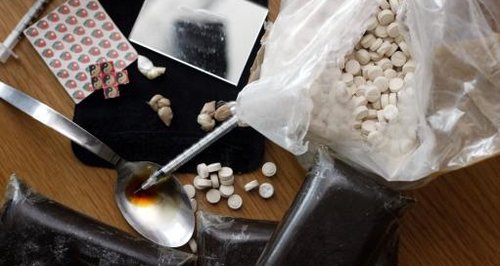Sharp rise in drug-related hospital stays
28 May 2019, 13:58 | Updated: 28 May 2019, 14:52

Drug-related stays in Scotland's hospitals have quadrupled over the last 20 years, official figures show.
The fourfold increase in drug users staying in hospitals means that one in every 500 Scots were admitted for general, acute treatment in
2017-18 on average.
NHS Scotland statistics suggest that hospital stays due to drugs have gone up from 51 to 199 per 100,000 people, and have shown "a
sharper increase" in recent years.
There were 10,509 drug-related general acute hospital stays in Scotland in 2017-18, of which 1,791 were because of overdoses or
poisoning.
Ayrshire and Arran's NHS had the highest proportion of hospital stays because of drugs, with 352 stays per 100,000 of the population,
followed by Greater Glasgow and Clyde with 268.
Rates in rural Scotland were lower, with Shetland, Orkney and the Western Isles having the fewest admissions as a proportion of their
populations.
Heroin and opioids were the most common cause of hospital admissions, accounting for 58% of drug-related stays, while approximately half
involved people who live in the most-deprived parts of Scotland.
Opioid use accounted for the highest percentage of stays in all but the oldest and two-youngest age groups, where almost a third (31%) of
patients between 15 to 24 years old involved cocaine and 28% were due to cannabis-based drugs.
Responding to the release of the figures, Public Health Minister Joe FitzPatrick said: "There is no single simple solution to addressing the
harm caused by drugs.
"We're taking forward evidence-based actions and examining how services can evolve to ensure that they find those people most in need.
"This renewed focus has been backed by additional investment of £20 million in drug and alcohol treatment and support services and will be
used to improve the provision and quality of services."
